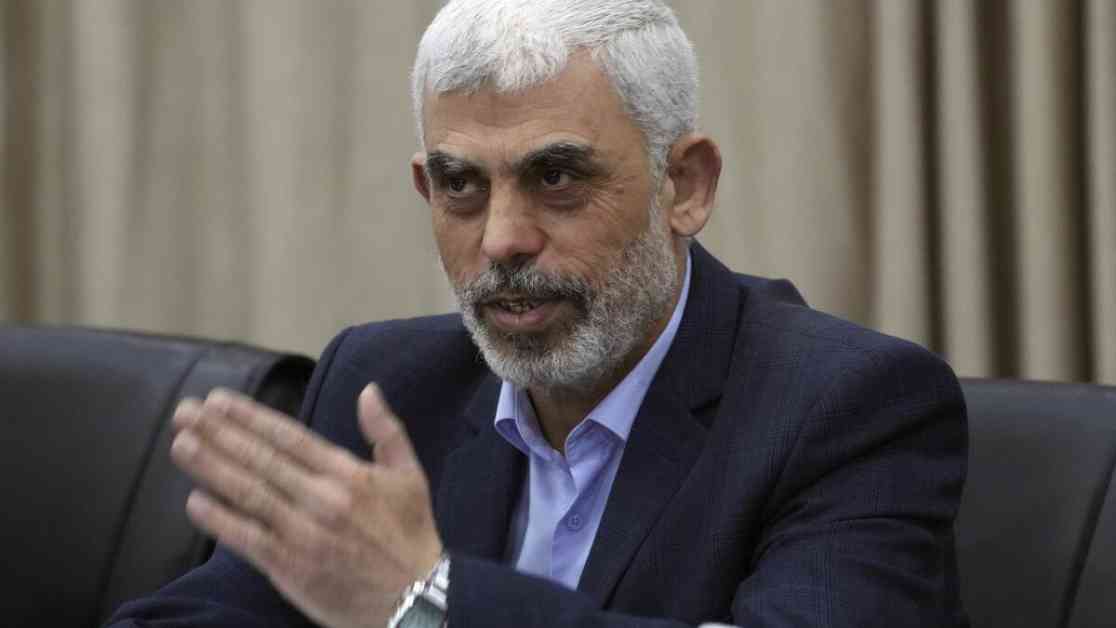Israel’s recent attack on Hamas leader Yahya Sinwar has left the Palestinian militant group in a state of mourning, but experts believe that this will not be the end of the organization. Despite the significant loss, Hamas remains a formidable force in the region.
The death of Sinwar has created a leadership vacuum within Hamas, raising questions about who will step up to fill his shoes. While some analysts view this as an opportunity for the group to strengthen its position and rally its supporters, others caution that the loss of senior leaders often leads to increased radicalization within militant organizations.
In the past, Israel has targeted top Hamas leaders in what they refer to as “mowing the grass,” a strategy aimed at weakening the group. However, history has shown that these targeted killings do not always have the desired long-term impact on the organization.
The succession plan within Hamas remains unclear, with potential candidates for leadership roles including Sinwar’s younger brother Mohammed and founding member Khaled Meshal. The group’s ability to continue operating in the face of leadership losses is a testament to its decentralized structure and autonomous cells within Gaza.
Israel’s release of drone footage capturing Sinwar’s final moments has sparked debate about the use of propaganda in the conflict. The footage portrays Sinwar as a defiant figure, fighting against Israeli forces until the very end. This narrative has resonated with supporters of the group, who see it as a symbol of Palestinian resistance.
Hamas’ relationship with Iran, a key supporter of the group, has also come into focus following Sinwar’s death. While Hamas is part of the “axis of resistance” alongside other Iranian-backed groups, some analysts believe that a shift in leadership could lead to a reevaluation of this relationship. The loss of Sinwar, known for his close ties to Tehran, may result in a less Iran-friendly leader taking the reins.
Overall, the death of Yahya Sinwar has dealt a significant blow to Hamas, but the group remains a potent force in the region. As the organization navigates this leadership crisis, the future of its conflict with Israel and its ties to external supporters like Iran will be closely watched.



























